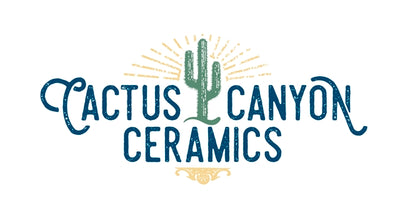The shipping of extra virgin olive oil and hand painted ceramics from Spain to the States involves a lot of work. First there are quite a lot of details to sort out in the production, packaging and labeling, and then once everything is ready to go the paperwork starts. Yeah, lots of fun. Factory invoices, packing lists, Importer Security Filing ’10+2’s, Bill of Ladens, and Airway Bills are some of the documents that are standard. Weights, sizes, cubic volume and prices are registered and poured over to make sure everything is correct and squares up so no problems are encountered at Spanish Aduanas or at US Customs.
Over the past ten years, importing in the States has become more controlled through standardization of the documentation. I have dealt with factories that learned the system during the early 2000s, when the system was much more lenient. One factory in particular did not prepare a detailed packing list, and habitually did not provide documentation until the container was on it’s way to the port. The factory has had to relearn the process and become much more proactive and detailed in the preparation of shipping documents. In the old days, I get the impression they could load up a container with all kinds of stuff, scribble together a simple invoice and packing list and send the container on the way. This no longer is a good strategy.
There is a huge infrastructure built up to support international shipping, and just as you would suspect, there a lot of terms that are bandied about on the telephone and in emails that for a regular person, makes little sense. One of the lingos a person has to pick up if they work in international shipping is the Incoterms (International Commercial Terms). Google defines Incoterms as “….a set of rules which define the responsibilities of sellers and buyers for the delivery of goods under sales contracts. They are published by the International Chamber of Commerce (ICC) and are widely used in commercial transactions.”
Early on when I started up Cactus Canyon Ceramics and I had to deal with US customers interested in purchasing and importing hand painted Spanish pottery, I put together a webpage for Incoterms to better explain the differences in agreements between the buyer and the seller. I published the webpage on Spanishtreasures.biz, which I had developed as an informational site. Basically the page described where responsibilities and risks lie for both the buyer and the seller. Below is a summary of the information I provided on that page, based on Incoterms 2000. Since then, the Incoterms have been updated with a 2010 version, but much of the information is the same. If you would like to to access a very helpful web page on Incoterms 2010, click here. For a summary, reference chart, click here.
While there may be many sorts of agreements, it is my experience exporting Spanish extra virgin olive oil and hand painted Spanish pottery, that most agreements are Free on Board (FOB) at a nearby Spanish port. For Southern Spain, the most important ports are Valencia, Malaga and Algeciras. Sometime Ex-Work agreements are worked out, but usually it is FOB. Most US companies do not want to have to deal with internal transport logistics within the country of Spain, which is understandable due to language, cultural, schedules, currency, time zones, etc.

Below please find simply definitions of the Incoterms.
EXW (Ex Works): the seller makes the goods available packed and ready at the factory door.
FCA (Free Carrier): the seller hands over the goods, cleared for export, into the custody of the first carrier (named by the buyer) at the named place. This term is suitable for all modes of transport, including carriage by air, rail, road, and containerised / multi-modal transport.
FAS (Free Alongside Ship): the seller must place the goods alongside the ship at the named port. The seller must clear the goods for export.
FOB (Free On Board): the classic maritime trade term, Free On Board: seller must load the goods on board the ship nominated by the buyer, cost and risk being divided at ship’s rail. The seller must clear the goods for export. Maritime transport only.
CFR (Cost and Freight): seller must pay the costs and freight to bring the goods to the port of destination. However, risk is transferred to the buyer (ie insurance responsibilities) once the goods have crossed the ship’s rail. Maritime transport only.
CIF (Cost, Insurance and Freight): exactly the same as CFR except that the seller must in addition procure and pay for insurance for the buyer. Maritime transport only.
CPT (Carriage Paid To): the general/containerised/multimodal equivalent of CFR. The seller pays for carriage to the named point of destination, but risk passes when the goods are handed over to the first carrier (ie the buyer insures after the goods are in the custody of the first carrier).
CIP (Carriage and Insurance Paid to): the containerised transport/multimodal equivalent of CIF. Seller pays for carriage and insurance to the named destination point, but risk passes when the goods are handed over to the first carrier. Usually, the seller insures for the minimum amount, leaving a more complete coverage the responsibility of the buyer.
DAF (Delivered At Frontier): Easily understood when the term refers to goods transported by rail and/or road. The seller pays for transportation to the named place of delivery at the frontier. The buyer arranges for customs clearance and pays for transportation from the frontier to his factory. The passing of risk occurs at the frontier.
DES (Delivered Ex Ship): The passing of risk occurs when the ship has arrived at the destination port and the goods are made available for unloading to the buyer. The seller pays the same freight and insurance costs as he would under a CIF arrangement.
DEQ (Delivered Ex Quay): It means the same as DES, but the passing of risk does not occur until the goods have been unloaded at the port of destination (ie unloaded at destination port).
DDU (Delivered Duty Unpaid): Means that the seller delivers the goods to the buyer to the named place of destination in the contract of sale. The goods are not cleared for import or unloaded from any form of transport at the place of destination. The buyer is responsible for the costs and risks for the unloading, duty and any subsequent delivery beyond the place of destination. However, if the buyer wishes the seller to bear cost and risks associated with the import clearance, duty, unloading and subsequent delivery beyond the place of destination, then this all needs to be explicitly agreed upon in the contract of sale. The term is used irrespective of the mode of transport. However when the delivery is to take place at the port of destination, either on board the vessel or on the quay, then the terms DES or DEQ shall be used.
DDP (Delivered Duty Paid): Means the seller pays for all transportation costs and bears all risk until the goods have been delivered and pays the duty.
Customs, Tariffs and Duties
Customs is responsible for assuring international trade flows safely and legally between countries. In many cases, tariffs are levied on international trade to “level the playing field”. In the next post, I will provide information about the Harmonized Tariff Schedule (HTS codes), which is another lingo that traders have to know.

I welcome comments, observations and questions. Don’t hesitate to email if I can be of any help. I don’t know everything there is to know, but I do have a growing repertoire of experience (both good and bad :-). If you made it this far, thanks for reading.
Steve McCann
GringoCool & Cactus Canyon Ceramics


